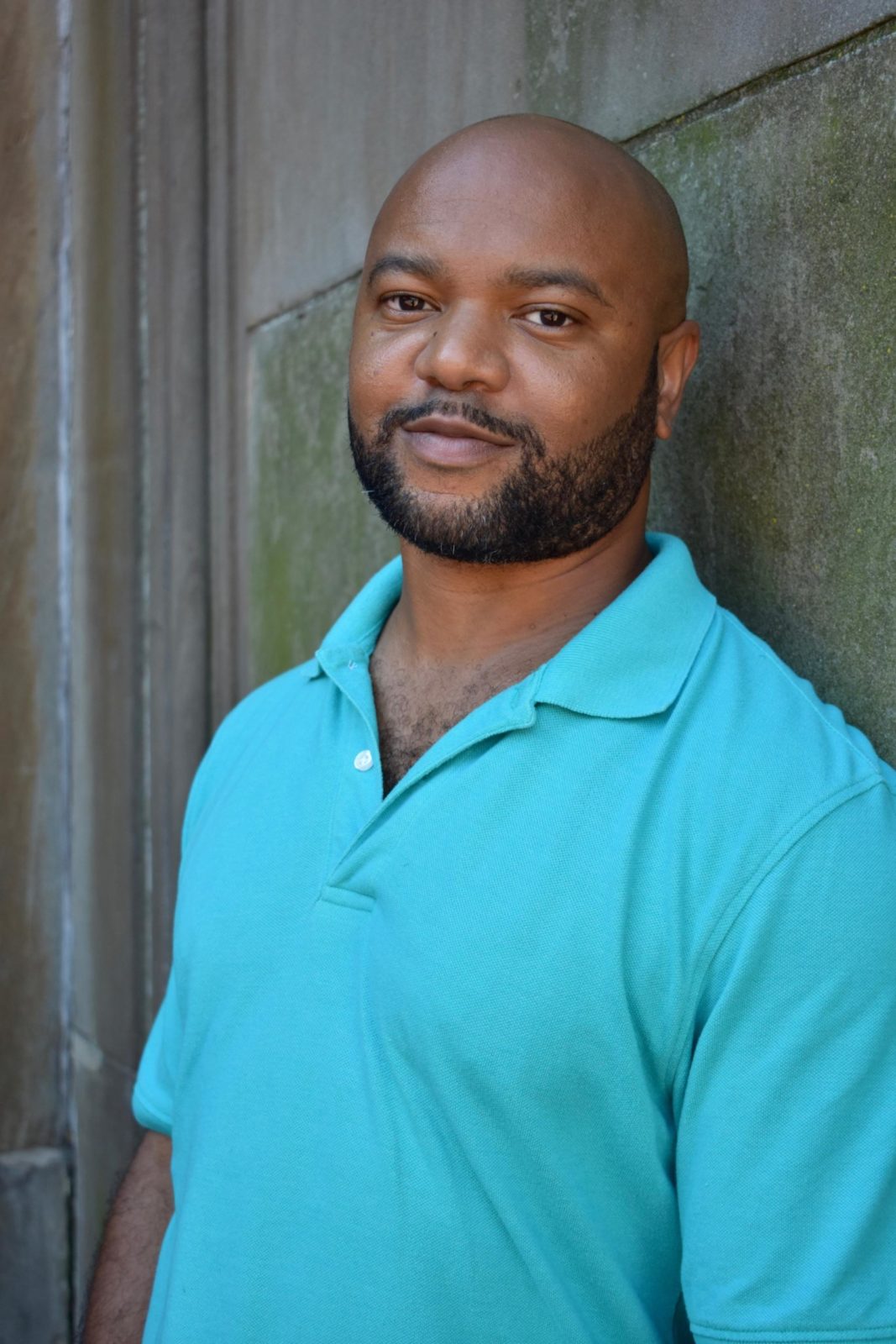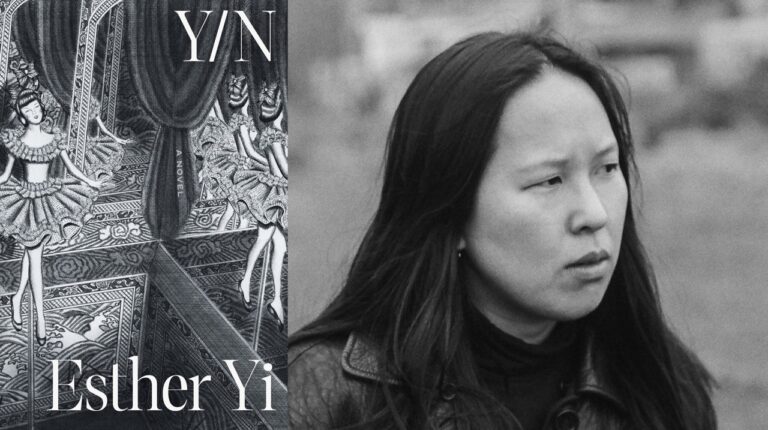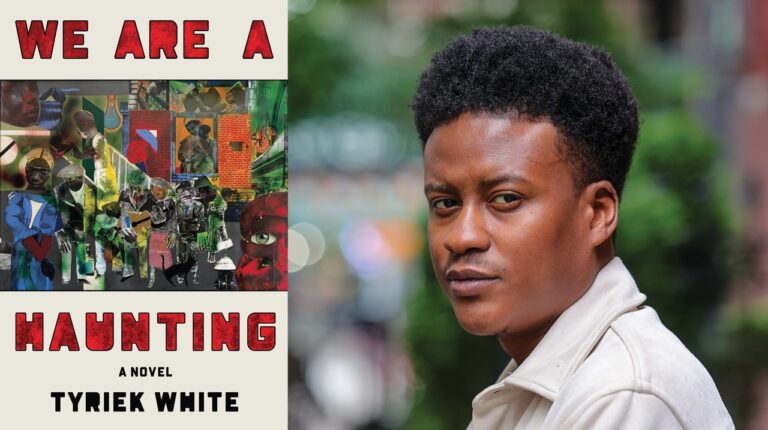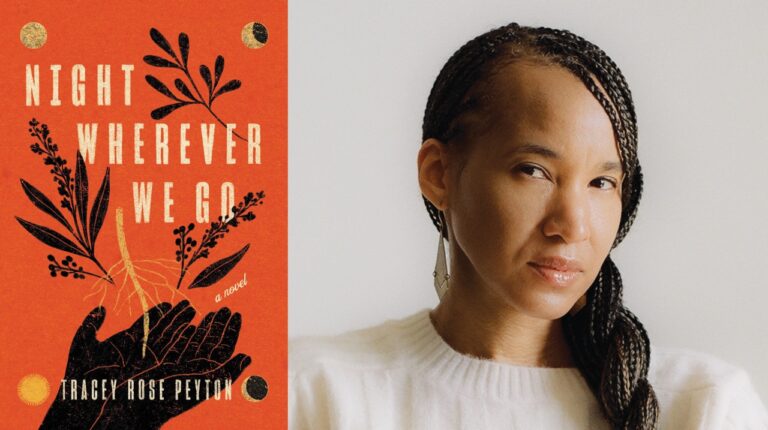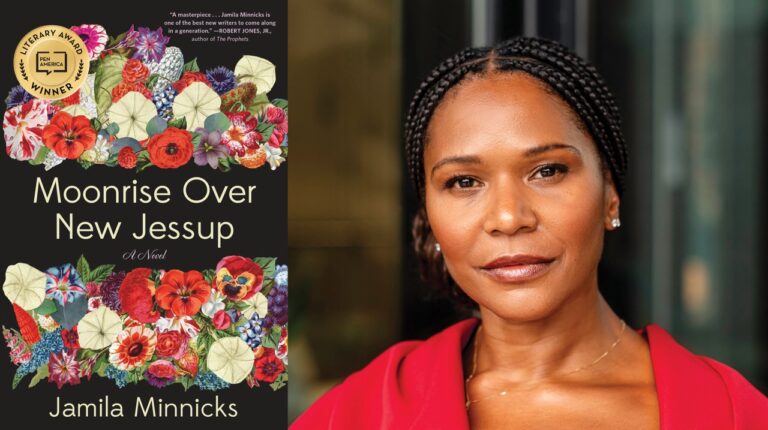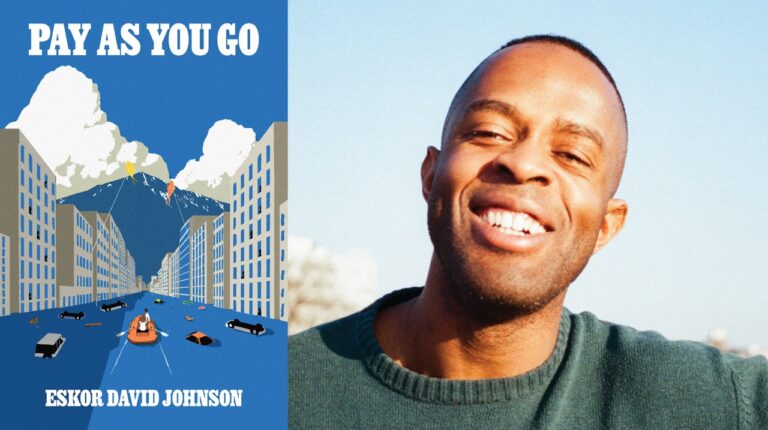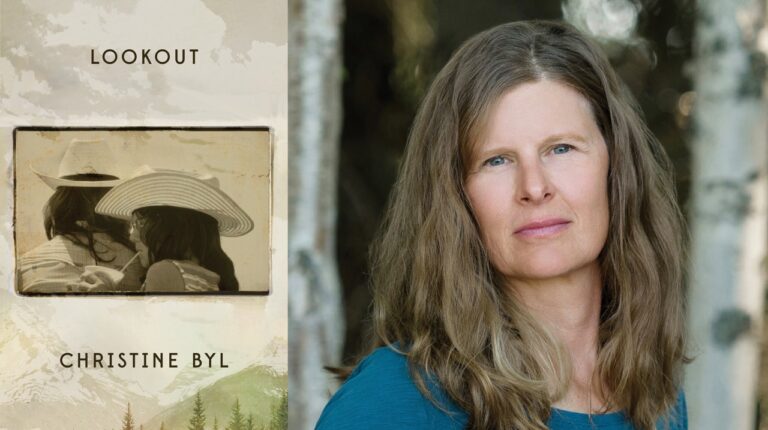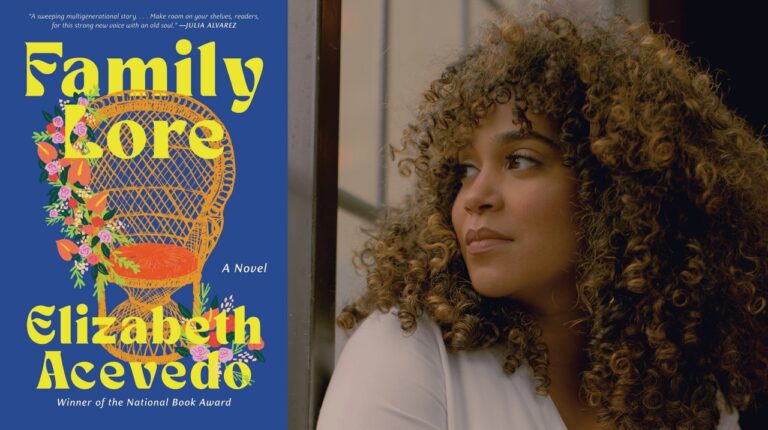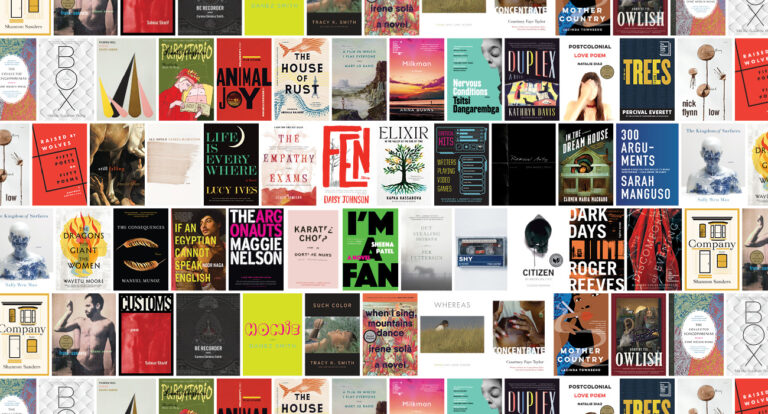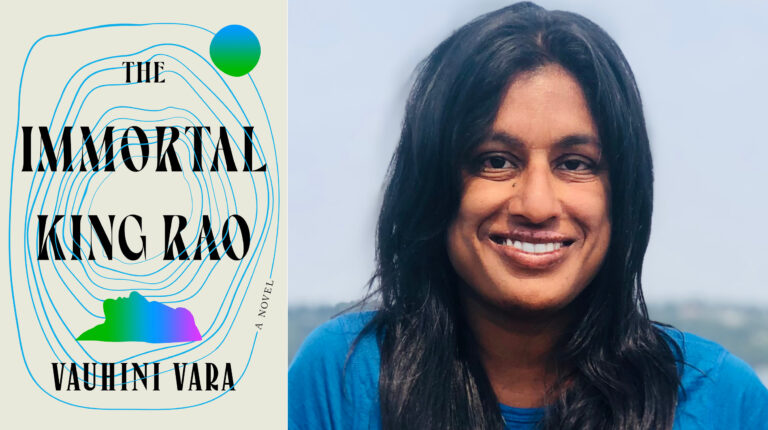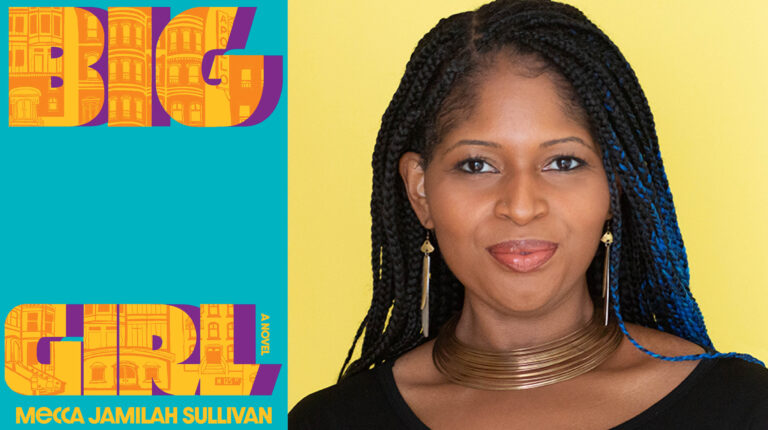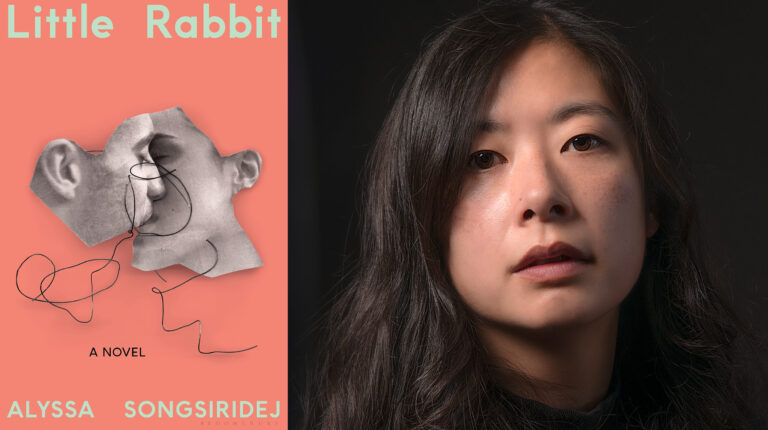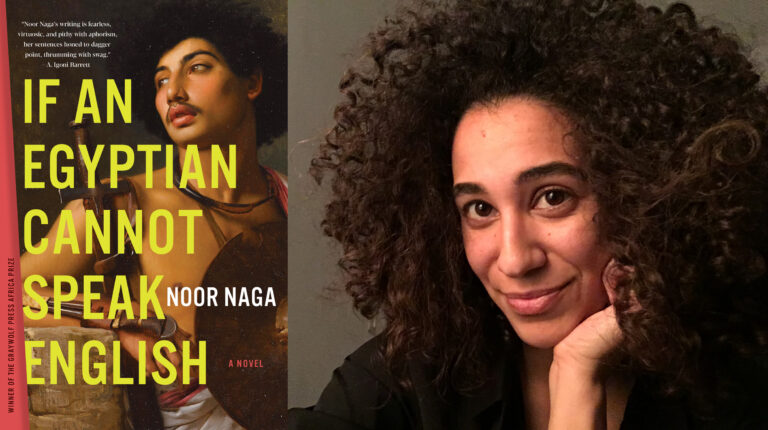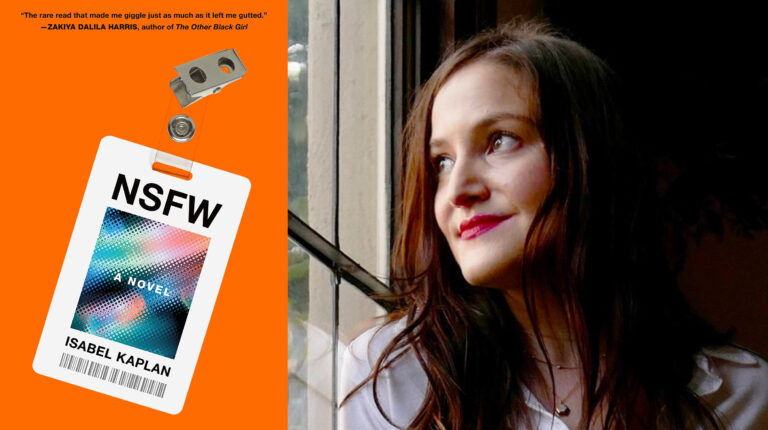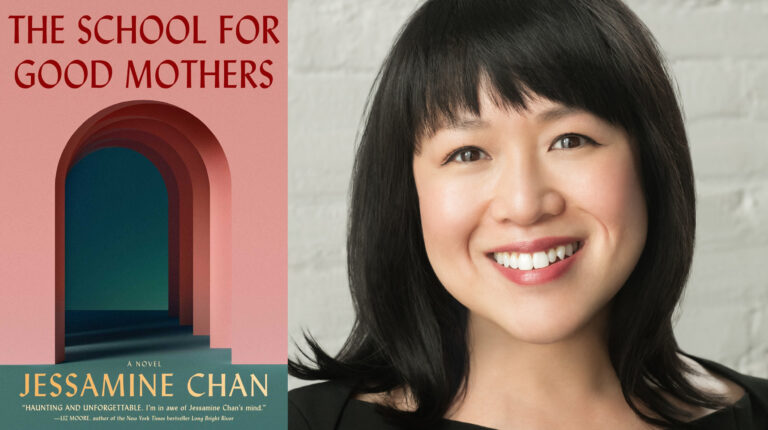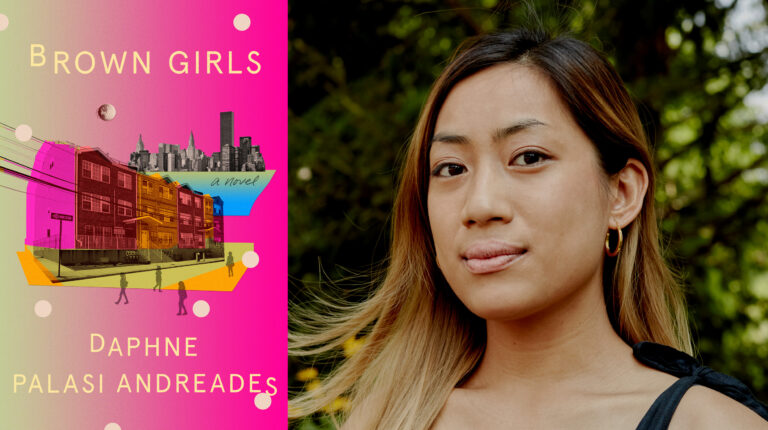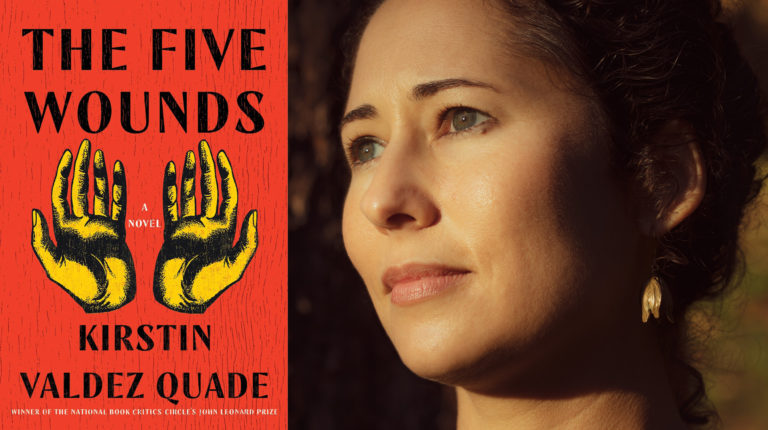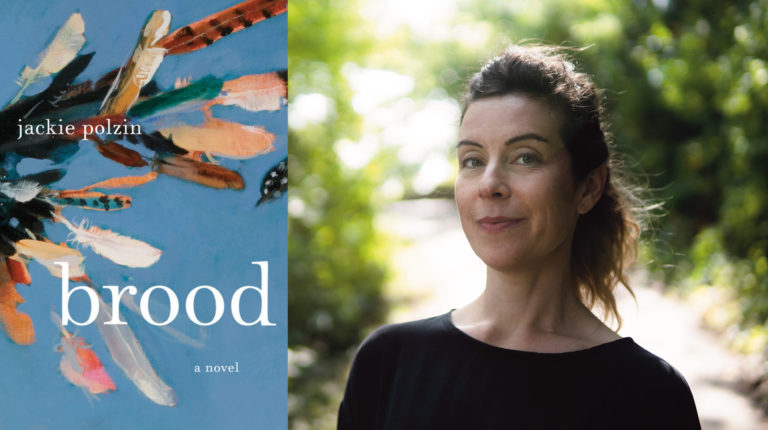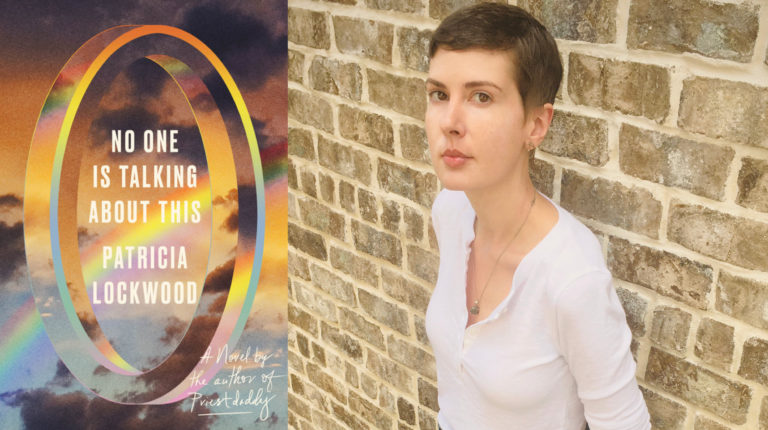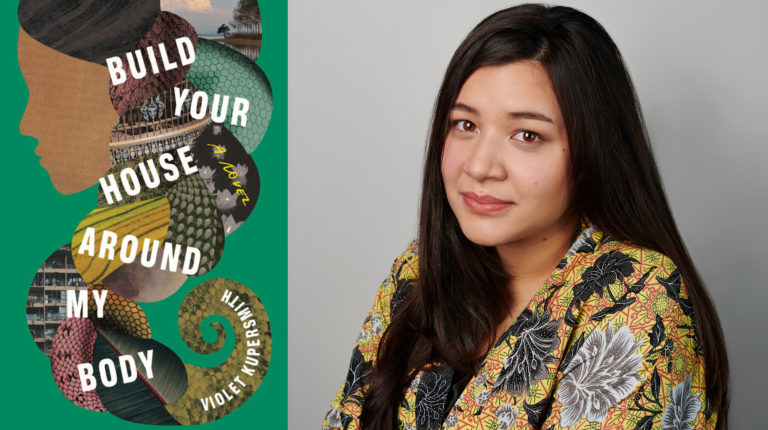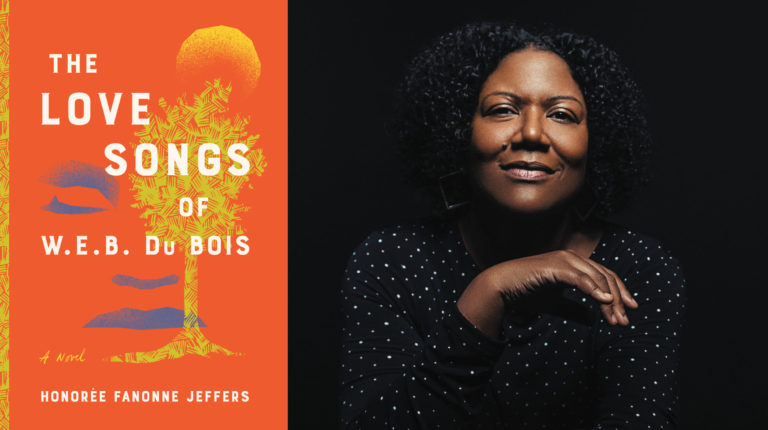De’Shawn Charles Winslow, winner of our 2019 First Novel Prize, discussed his debut novel In West Mills with the Center’s Executive Director Noreen Tomassi. Spanning decades in a rural North Carolina town where a canal acts as the color line, In West Mills is a magnificent, big-hearted small-town story about family, friendship, storytelling, and the redemptive power of love.
It’s such a pleasure to have the opportunity to speak with De’Shawn Charles about of his wonderful book, In West Mills, which won our 2019 First Novel Prize. This unforgettable novel is perfect example of everything The Center values and admires in a debut novel.
De’Shawn, I was so struck when I read this book by its range. I was particularly interested in how you track the varieties of love in the town of West Mills over almost five decades. We see the relationship of Otis Lee and his partner, watch the entanglements of the main character Knot, and observe the varieties of parental and familial love in this small community. I’m curious about your intentions in structuring so much of the book around this central question or theme—How do people love one other over a lifetime, because we watch that love change, shatter, and evolve in so many of the characters.
It was an interesting process. After I finished a couple drafts, I went back through from the top and looked at almost every relationship to see if there was some form of tension there. And if any of them seemed too perfect, I knew they weren’t realistic enough. Otis Lee and his wife Pep, for example, in earlier drafts were too perfect a couple. And I realized–I need to do something there. They could be very much in love, but could have secrets from one another. And so their love became more complex. I did that with every relationship.
I’m so intrigued that you say that about Otis Lee and Pep because I felt, as I started to read, oh, this is a perfect love, this is such an incredible, unmatchable relationship. And then as I read on I found that even they had their troubles. I was also really intrigued by your depiction of the characters’ relationship to parenting–theirs and Knot’s. She had children by two different men, one man she loved, and one who she enjoyed being with for a very short time . . .
. . . for one week.
. . . and in each instance she made the choice to give the child to someone else to raise. That must have been an incredibly difficult thing to write and still evoke the reader’s sympathy for a mother who gives her children away.
Yes, I had to put myself in the mind of a person who believes she’s saving her children by giving them away. When I was constructing that part of Knot’s life, I thought a lot about Sethe from Beloved and how she successfully murdered one child and attempted to murder the other three. In Sethe’s mind it wasn’t murder, it was protection, salvation. So I brought that reading experience to writing Knot. She believed to the end that she did the right thing. But I also had to make sure that it didn’t seem a cold, cold act, I had to give her the depression that came right after doing it. Otherwise, it would have made her look monstrous.
One of the things that made that work for me as a reader was her relationship with Otis Lee–his fondness for her and her love for him. That relationship so humanized her that even when she was making these extreme decisions, they seem understandable.
It’s very unusual for a novel to depict that kind of lifelong friendship, non-sexual love, between a man and a woman.
One of my mother’s closest friends was a man, and he was like an uncle to me, almost like a grandfather, because he was older than my mom. It was a well understood and accepted friendship, you know? My father didn’t even seem to have any issues with it. And so I wanted to show that in my writing. I wanted to show that two people of the opposite sex, two heterosexual people could be friends, could be best friends, without having any sexual attraction or connection to each other.
Well, it worked beautifully. But I’m also curious about the challenges of creating a novel that spans almost five decades and follows a number of characters pretty closely.
Yes, the time frame was especially challenging. In order to see the characters age, I sometimes had to visualize the novel as a long movie or TV series and remind myself as I would move through the book, and especially when say 10 years has passed, what visually might change physically in them, in their town, and also emotionally, how might they have changed as people between, for example, 1950 to 1965,
I did have to do some mapping and make sure that I didn’t age the characters too much or too little and that I matured them in a way that seemed realistic based on other factors–their reactions to people around them, to the town, and to the world. So, that was a bit of a challenge. And the novel I’m working on now has much shorter timeline and narrower scope.
The world of West Mills is so alive for the reader, so beautifully rendered, that I wondered if it mirrored the place where you grew up.
Yes. I based West Mills on the town where my mother and her siblings were raised—South Mills, North Carolina. And originally I was going to name the book In South Mills. But I began to find myself going down a rabbit hole with research. The novel was turning into a historical document about the town and its formation. So I changed the name of the town and stopped all that research. I’d still visualize little areas of the town and that’s how I was able to paint the picture, create something new, but using some aspects of the real town.
Are you thinking of setting other novels in West Mills?
Yes, the new book is also set there.
Yes, one of the families from In West Mills, but peripheral in that novel, is now one of the main three households in the new book.
You also set part of the novel in New York City, following the character who leaves her home and develops an entirely different life in the North.
Yes, Essie is Otis Lee’s sister and she is biracial, and the story Otis Lee has been told all his life is that she sold the family’s land for dirt cheap so that she could have money to run to the North and pass as white. And he later learns that some but not all of that is true. She is passing for white. She marries a white police officer and becomes the madam of a brothel. Essie is based in part on a great aunt I never met. When I did some genealogical research–not that I didn’t know it already–I found that my paternal grandmother and many of her siblings were biracial.
And that led me to wonder what might have happened to that great aunt because she never came to North Carolina. Maybe she could have passed and decided to do that. I don’t think that’s the case, but I wondered if that was the reason I’d never met her. So, that’s where Essie’s character came from. And I chose New York because it has become my second home. I’ve lived in New York now for 16 years, aside from the short period of time I spent in Iowa at school.
During the time period when Essie would have left the South, I imagined she would have come here, where things were a little more liberal and not everyone had their magnifying glasses out. And I also wanted to capture the reality that not everyone who runs to the North loves it. It may provide differences, beneficial differences, but it’s an adjustment.
Can you tell me a little bit about the genesis of the novel? Did it begin as a short story? Did you always know it would be a novel? What was the germ of the idea, and what convinced you to go forward with it?
In West Mills began as a long short story. I was in a class taught by Ethan Canin called “The Long Story.” I workshopped it a couple times and was told by my peers that it felt like a novel trying to be crammed into 30-something pages. At first I disagreed and thought, “Edward P. Jones does it all the time and I can do this, too.” But eventually I gave in and decided to try to write it as a novel, though I didn’t think of myself as a novel writer. I’d always assumed that I would write linked short stories. But this novel just kept finding more avenues and kept spreading, and I took the opportunity.
I don’t remember what made me decide to write that story about Knot. I knew a Knot when I was a child. She was my great uncle’s girlfriend, and she was really well loved in the community and within the family, and so on. But I didn’t think about her constantly, and I really can’t remember what brought her to my mind in 2015. I wish I could.
So, when you begin a novel or even a short story, is it the character that drives it? Is that where you always begin?
Yes, for me it’s always character. I start with character. Once I decided I did want to write a fictional portrayal of the real Knot that I knew, I had to start with what I knew of her–her alcoholism and her feistiness. But there was so much that I didn’t know. I was 10 when the real Knot passed away. So I did a little bit of research on her and found out her parents were sharecroppers. Her father wasn’t a dentist. So, yes, it started with character, and I began by doing the sort of traditional thing that we learn in creative writing classes–asking, what does this character want? What’s in the way of that? And she began to evolve.
Did you have any trepidation – and I don’t see why you would, but it’s a question writers get asked all the time now – did you have any trepidation as a man about writing a woman as your main character?
No. At the time I did not because I felt that I could probably write a woman much better than I could write a straight male. And that’s because I’m gay, and I figured that out pretty early in life, as did the people around me. And so, growing up I was surrounded by women at all times. You know, quite frankly, most of the men in my family would have very little to do with me. It’s just the way it can be sometimes.
It wasn’t until after I finished the book and started to hear conversations about appropriation that I thought, oh my god, have I done this? And I came to the conclusion that I had written her and the other women in the book in the best way I could and hadn’t done anything to exploit them, you know? In fact, writing Otis Lee and Pratt were more difficult for me.
But they’re very alive on the page as men of their time and their place.
Thank you.
It was just a time when all sorts of prejudices that still exist were much more accepted. But you have a wonderfully written male gay character who is a friend of Knot’s who comes in and out of the novel in an interesting way and Otis Lee and others are utterly accepting of him.
Yes. They wish he were different, but they accept him at the same time, and I think that’s because deep down they are compassionate people.
Is there anything you might like to tell other writers who are beginning a first novel about the challenges you faced?
Yes, the challenges came for me once I decided, okay, I am going to make this into a novel. I had this beginning, some middle, this end. I knew how it was going to end. The challenge was to fill in everything in the middle. Often, I would turn to genealogy to spark little ideas about where to go. As I said, that’s where the Essie part came from. Sometimes looking at old birth and death certificates and marriage certificates sparked something. I would ask questions based on them. These two got married two years after these two, would they have been at that couple’s wedding together? Were they seeing each other then? And that’s how the Mannings and the Waters came to be. But it was challenging. Sometimes ideas would flow out of nowhere, and sometimes I would want to beg for somebody to give me an idea. But in the end, I trusted the process, and that’s what I would advise other people working on a first novel to do.
And who were the writers that had a great influence on you?
Toni Morrison’s works and the work of Alice Walker, and also J. California Cooper who I had not known about until recently–those voices and their mostly female protagonists inspired and helped me a lot. They gave me permission to write what I felt like writing, and from the perspectives I felt like writing about, because someone else had done it, and it had been accepted, you know? I didn’t have to write in a way that would make me feel ashamed of my upbringing.
I will forever be in debt to those women and their work. I don’t read a lot of work written by men, and a lot of that has to do with what I explained earlier, that most of my life has been spent in the company of women. So I find that I read very little work written by men, especially straight men. It’s just not my go to, you know?
Are there classic novels or work from earlier centuries that you read and have felt have influenced the way you write at all?
Dickens’ work. I think Dickens does a really good job of removing himself. His books didn’t feel to me when I was reading them as a student as if they were written by a patriarchal, wealthy man. And I love all those plots, you know? So, yes, Dickens, in addition to Toni Morrison and Alice Walker, heavily influenced how the characters in West Mills intersect and have effects on each other’s lives, if only for a passing moment.
I want to tell you the reaction here among people here at The Center, and one of the judges pointed this out as well, was that reading In West Mills felt like reading a classic, a book that people would be reading for a very long time. And that’s a very interesting comment to me, because I don’t think any writer actually ever really sets out to write something that someone would consider a classic.
No, but I’m very honored that people might think of it that way, I’m very glad.
It’s a wonderful, wonderful book and I recommend it every chance I get. So thank you. Thank you for this talk and for your extraordinary novel.
-
.
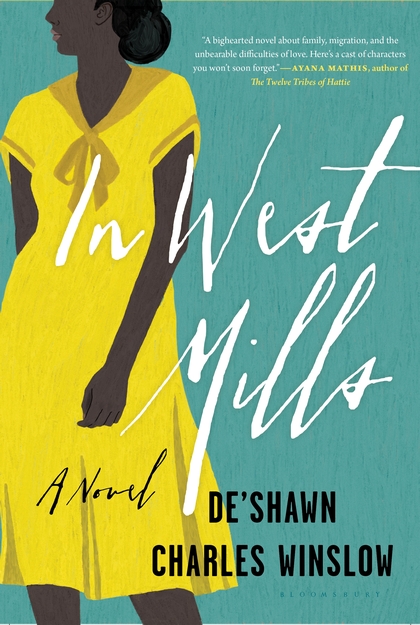
In West Mills
By De'Shawn Charles Winslow
Published by Bloomsbury
Let the people of West Mills say what they will about Azalea “Knot” Centre; they won’t keep her from what she loves best: cheap moonshine, nineteenth-century literature, and the company of men. And yet, when motherhood looms, Knot begins to learn that her freedom has come at a high price. Low on money, ostracized from her parents and cut off from her hometown, Knot turns to her neighbor, Otis Lee Loving, in search of some semblance of family and home.
Otis Lee is eager to help. A lifelong fixer, Otis Lee is determined to steer his friends and family away from decisions that will cause them heartache and ridicule. After his failed attempt to help his older sister, who lives a precarious life in the North, Otis Lee discovers a possible path to redemption in the chaos Knot brings to his doorstep. But while he’s busy trying to fix Knot’s life, Otis Lee finds himself powerless to repair the many troubles within his own family, as the long-buried secrets of his troubled past begin to come to light.
De’Shawn Charles Winslow was born and raised in Elizabeth City, North Carolina. He holds an MFA in fiction, a BFA in creative writing, and an MA in English literature. He lives in New York.
